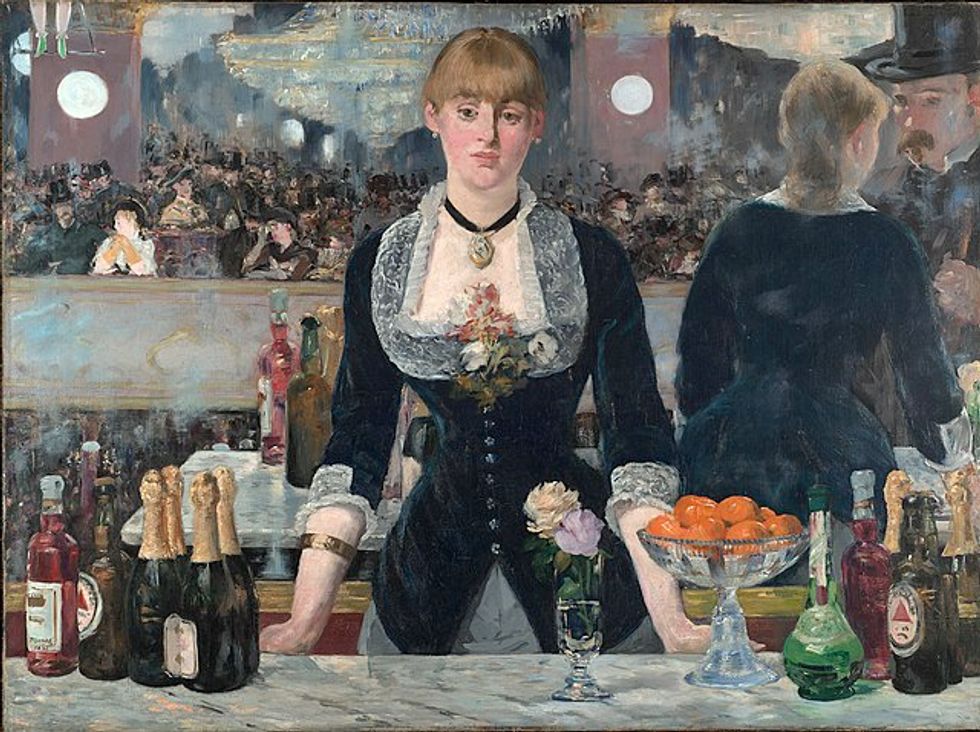Manet masterpiece cancelled as ‘woke’ art gallery highlights ‘misogyny’ in painting after £57m refurb
Manet's masterpiece, A Bar at the Folies-Bergère, appears to be the latest victim of cancel culture
Don't Miss
Most Read
Latest
The Courtauld Gallery in London has highlighted the “male gaze” in Manet’s work.
The painting has been slapped with a new label suggesting it has an “unsettling” quality because of the presence of a man on the canvas.
The 1882 piece shows a barmaid looking out and, in a mirrored image, towards a male patron of a Parisian cabaret club who returns her gaze.
The new information panel dubs the female subject “enigmatic” and her expression “unsettling” as she “appears to be interacting with a male customer”.
The Manet label is one of many introduced in the gallery, as curators look to address “misogyny” in art.
The gallery, which holds the UK’s foremost Impressionist collection, reviewed the labelling of all of its paintings as part of a three-year, £57million refurbishment.
Manet's A Bar at the Folies-Bergère
Wiki Commons
Some information panels now address issues like artists’ racism and sexism.
Historian Ruth Millington dubbed the interpretation “woke” and urged curators to stop "trapping female muses".
Manet
Wiki Commons
She told the Telegraph: “It completely shifts the viewer’s attention away from her and onto the man in the picture.
“This interpretation, in a woke attempt to call out misogyny, unwittingly centres the male gaze. The writer implies that the woman is unsettled by the man’s presence, framing her as a passive victim of her circumstances.
“Curators must stop trapping female muses and models with male-centred interpretations such as this.
“In a painting of multiple gazes, it’s unfair and misogynistic to emphasise the male perspective. I’d rather read a fresh new label which invites viewers to imagine what the woman is thinking.”
Manet’s work is not the only victim of cancel culture, though.
The Courtauld holds the UK’s leading collection of Gauguin works, but the French painter has now been accused of “taking advantage of his position as a European coloniser”.
Nevermore, one of his most famous post-Impressionist works, has been slapped with a label stating that the painting shows “one of several teenagers that he took on as ‘wives’”.
It adds: “The widespread racist fantasy of Tahitian girls as sexually precocious led to their unabashed exploitation."
While his 1897 painting Te Rerioa now has a label telling viewers that its subject matter was intended to “appeal to a white European audience” by “exoticising” Polynesians.
It comes after Jane Austen was cancelled at Stirling University.
Toni Morrison, a writer known for works on the African American experience, temporarily replaced the Pride and Prejudice author in an English module.
Ahead of the change, university documents reportedly said replacing Austen will help the “decolonisation of the curriculum”.
Forms notifying management of the change allegedly said it will “contribute to increased diversity” on the syllabus.
The Courtauld has been contacted for comment.













